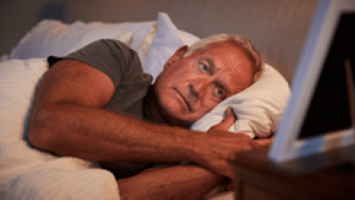Trouble Sleeping? You’re Not Alone
If you are an older adult, you may have experienced numerous changes often attributed to aging. This includes your quality of sleep. It is common to experience sleep disruptions on occasion. However, if it becomes “the norm,” sleeplessness may have a negative impact on your daily life.
Having trouble falling asleep or staying asleep (insomnia) can be considered a chronic condition if it goes on for more than a month. A visit with your doctor may provide some answers and treatment options.
Health Considerations
Diseases/disorders like depression, anxiety, heart disease, diabetes and chronic pain often have components of sleep disruptions – too much, not enough or the inability to stay asleep. Side effects of some medications may also play a role.
As we age, our Circadian Rhythm, or 24-hour internal body clock, goes through some adjustments. This can create changes to when we feel most alert and when we are feeling tired. To learn more about the affects to your daily life visit –How Circadian Rhythms Change as We Age | Sleep Foundation
Lifestyle
There are many other factors that contribute to difficulty with sleep – lifestyle changes such as retirement or traveling; jet lag; daylight savings time coming up soon in Minnesota, increases or decreases in the amount of daily activity and, of course, “things on your mind”, what you have eaten.
Restorative sleep is vital to good health.
Here are a few tips that may be effective:
- Avoid or reduce things that interfere with solid sleep – caffeine, alcohol, late evening meals or snacks and tobacco.
- In the bedroom, limit use of electronics like smart phones, laptops, TV, tablets.
- Try “winding down” as you near bedtime. Read a book, watch a relaxing show, listen to calming music – anything considered low-key.
- Create a consistent routine that fits well into your lifestyle as far as when to go to bed and when to wake up.
- Exercise/activity – staying active and participating in exercises is another important part of your sleep health.

